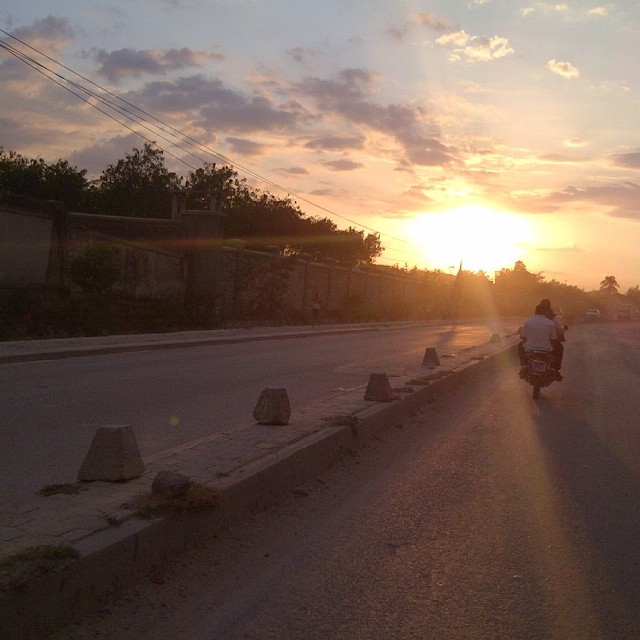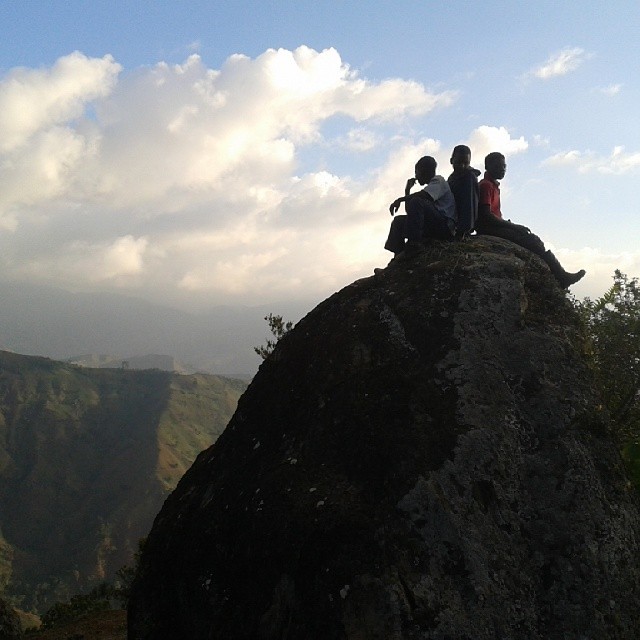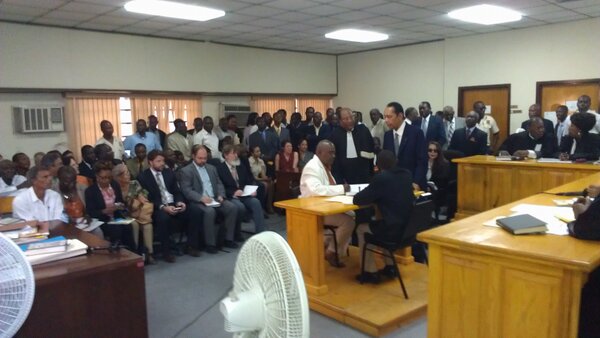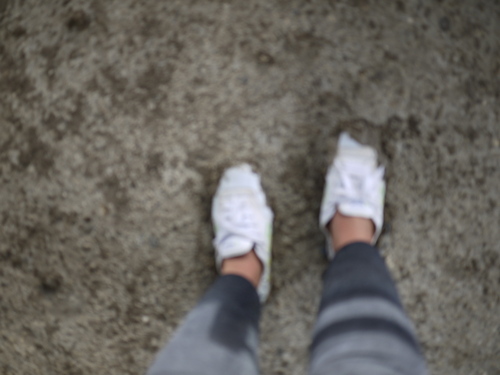lessondary


Tabarre March 2012 and Baz Gwo Wòch, Furcy April 2014.
A very short compendium of Life Skills and Small Sagesses picked up over four-ish years in the blessed, beautiful Republic of Haiti, though useful far and wide:
1) How to hide cash, phone, keys, and anything else you may need (which is to say, nothing else) in a bra to keep from getting stolen during the inevitable finger-crawling-body-crush during Carnival. Lifehack for the braless: put everything into the pockets of a pair of shorts worn under your jeans.
2) How to ride a motorcycle taxi. Excellent core workout. Ass out, thighs strong, back partially arched, but body still loose enough to flow with the curves, hills, sudden stops, and shifts in speed. Arms can stay relaxed, fingers tapping nonchalantly just above the knees. Optional: bump up the IDGAF levels by typing up story notes and firing off emails on your phone while weaving through traffic. If you can write and file assignments this way, a frosty Prestige beer can be your reward when you finally hop off the bike at the end of the road.
3) There is no better reward at the end of a sticky, dusty, shouty, melty, dramatic day than a frosty Prestige.
4) Lime on the face eases the sting of tear gas. Some people go for toothpaste, but if they’re in season, I swear by lime. Secondary bonus: citrus facial treatment. When you wash the layers of black tire ash and grime from your face after the protest, soft glowing skin awaits.
5) DEET melts nail polish. Nail polish hides grime. Mosquitos are vile little evils. Learn to make your own repellant with grapeseed oil base and lavender, eucalyptus, citronella, and vetiver essential oils.
6) When someone in the street randomly tells you they love you, the appropriate response is “Thank you.” Keep it moving.
7) How to eat a ripe mango without a knife, no mess, no fuss. Choose a fruit free of dark spots and gently massage it, starting at the top and stopping just short of the bottom. Tear off a small piece of the tip with your teeth. Drink.
8) Rain can be more destructive and frightening than bullets.
9) The subtlety of egos, angers, and body languages. How to take the temperature of a large crowd or an imposing individual who may or may not try to lock you in their office to assault you. How to taste the exact moment just before things turn, anticipating your last window to make a safe and graceful exit. This can save your life.
10) The art of cool, quiet patience. My first lesson, and one I’m still learning. You will be trapped by horrendous traffic, the power will cut, the cooking gas will run out, the signal will drop, essentials will break down, and someone will be hours late or not materialize at all. The key to waiting is to never actually be waiting. Save your anger, smooth out, and drink every moment. If you can’t, at least drink a Prestige.
papadocratic caucus

Jean-Claude Duvalier, Haiti’s former President-for-Life and son of François Duvalier, in appeals court. 28 Feb, 2013.
Photo by @etiennecp.
One hot February afternoon last year I was sitting under one of the broad, white tents that was often erected on the National Palace grounds for special events – inaugurations, visits from foreign heads of state and the like – waiting for a promised interview with Haiti’s then-Foreign Affairs Minister, now Prime Minister, Laurent Lamothe. One of his aides, an omnipresent Canadian, came and sat down next to me. The aide pushed for details on what questions I wanted to ask Lamothe, stressing that there’d “only be time for one,” and asked if he could shoot video of my interview. I declined the strange request and said, vaguely, that I wanted to talk to him about the campaign to re-brand Haiti’s international image and the many challenges on that particular road. What kind of challenges, asked the aide, barely concealing his alarm. I laughed that there would be quite a number of bumps in any Haiti brand makeover. Shaking off negative stereotypes to attract investors would be tough – chief among them, the long associations with instability, inequality, and Duvalier. An investigating judge had just recently ruled not to bring human rights charges against the former President, who had returned from exile the year previous. The government aide scoffed at the D word.
“Don’t ask him about that,” he said sternly. “That’s the past. We’re looking to the future.”
I didn’t get my interview that day after all. But despite repeated attempts to shove the Jean-Claude issue aside, a year later the Duvalier name is on airwaves, printed in newspaper pages and slips off people’s tongues every moment of every day in Haiti. Even the Senior Duvalier, François, has been pulled back into conversation, with sharp local reactions this past week to an adoring memorial penned by his grandson, Nicholas.
In the case of Nicholas’ father, Jean-Claude, the human rights violation charges may have been dropped, but certainly not forgotten. I’ve been following the appeals process in a downtown Port-au-Prince courtroom since hearings began in late January, where alleged victims of his regime spend their Thursdays giving personal testimony of their unlawful arrests, solitary confinement, beatings and other tortures. The process is long, and few are optimistic about Haiti’s judicial system, but at least this particular piece of Haiti’s history is not being laid to rest, or rebranded, any time soon. Some of those testifying will participate in a number of memorial services tomorrow, April 26 – a day that is significant for a number of reasons.
Fifty years ago tomorrow was, according to documentation, a particularly evil day in a period that was already deeply marked by violence. Papa Doc was in charge. From Red Heat, the context: post-Trujillo President Juan Bosch of the Dominican Republic calling for François Duvalier’s ouster, mass arrests and tortures of student protestors in Port-au-Prince, John F. Kennedy mulling over whether to invade or support a coup lead by ex-Macoute Clément Barbot, and a nascent mutiny astir within the Haitian army. Duvalier Sr purged the army and threw himself a party to mark his apparent unfuckwittableness. And then:
Amid the celebrations, on 26 April, a limousine was taking two of Duvalier’s children, fourteen-year-Simone and eleven-year-old Jean-Claude, to school. Two blocks from the National Palace, another car slowed down alongside the limousine. With perfect precision, three shots were fired. The driver and two Tontons Macoutes, the children’s bodyguards, slumped down dead where they sat. The assassin did not fire on the children, who scrambled out and ran into the school, unharmed.
General Constant and Duvalier’s physician, Jacques Fourcand, begged him to calm down, lest he have another heart attack. “The children aren’t hurt,” said Fourcand. “You have time for sober reflection.”
Sober reflection was not Duvalier’s strong suit. Instead, he ordered sixty-five of his officers to be shot immediately without trial. The Tontons Macoutes were unleashed. Guns cocked, they swaggered through Port-au-Prince, shooting and killing anyone whose car was the same make as the assassin’s. Hundreds of civilians disappeared that day. By nightfall, bodies littered the streets.
The sharpest shot in the Haitian army had been one Lieutenant François Benoît, though he had been purged the previous week. In a blind fury, Duvalier became convinced–without evidence–that Benoît was the only man in Haiti capable of pulling off such a feat of shooting. The Macoutes went to look for Benoît. Twelve hours previously, he had escaped into the Dominican embassy. Instead, they went after his family. A squad arrived at the Benoît residence with submachine guns, and killed his father, his mother, a family friend, their servants, and their dogs, before setting fire to the house. Benoît’s baby son, Gérard, perished in his cradle.
(Barbot, as it turned out, had been the shooter. Not Benoît.)
This was followed by an aggressive stand-off at the Dominican embassy, flaring tempers in Santo Domingo, and plans for a sped-up U.S. invasion. Explanatory leaflets were printed in preparation, and American, Canadian and British warships convened in the Gulf of Gonâve. The OAS sent a team of investigators, and Duvalier ordered a carnival parade be hurried together to entertain them. To them he turned and asked, “If the OAS claims the right to intervene because of repressive internal conditions, why don’t they land troops in Alabama?”
There was no intervention, of course. Papa Doc carried on, and when he invited a group of journalists to the palace some weeks later, a group forever prone to promoting negative stereotypes about Haiti, he assured them: “The country is calm and peaceful.”
nan boudam

I’ve been in Haiti two months now and all my writing is going elsewhere. Some of it is secret. Fais-moi signe if you want in, car j’suis pas complètement à l’aise sharing it publicly pour l’instant.
It goes on: mud cholera heat elections campaign parades sweat sun hurricanes rains rubble dust smoke fires blackness traffic roadblocks protests cabrit rice barbancourt ti-punch tarps camps wind shacks 4x4s mountains sea monsters markets bodies shotguns sweetness sunsets sunrises roosters radio crackle comedians kompa smiles whispers coo-cooing chouchouuu.
